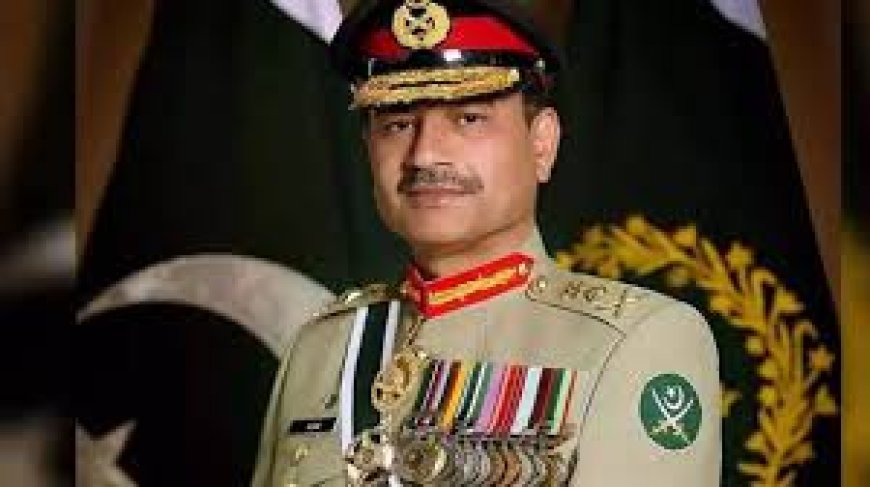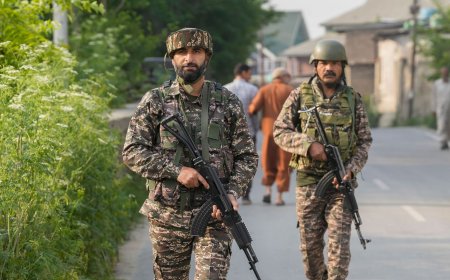Operation Sindoor Live: India Declines Face-Saving Exit for Pakistan Army Chief Asim Munir Amid Escalating Tensions
Amid escalating India-Pakistan tensions, India refuses a face-saving exit for Pakistan Army Chief Asim Munir during Operation Sindoor, signaling a firm stance against cross-border terrorism.

Operation Sindoor Live: India Declines Face-Saving Exit for Pakistan Army Chief Asim Munir Amid Escalating Tensions
Introduction
In a decisive move reflecting its unwavering stance against cross-border terrorism, India has launched Operation Sindoor, targeting militant infrastructures in Pakistan and Pakistan-occupied Kashmir. A senior Indian official emphasized that Pakistan Army Chief General Asim Munir will not be afforded a face-saving exit, underscoring India's commitment to holding perpetrators accountable and deterring future aggression.(The Times of India)
The Catalyst: Pahalgam Terror Attack
The operation was initiated in response to the heinous terrorist attack in Pahalgam on April 22, 2025, which claimed the lives of 26 civilians, predominantly Hindu tourists. The attack was attributed to the Resistance Front, an offshoot of the Pakistan-based militant group Lashkar-e-Taiba. India's swift and strategic military response aims to dismantle terrorist networks and send a clear message against harboring such entities.(Wikipedia)
Operation Sindoor: Strategic Strikes
On May 7, 2025, India executed precision airstrikes on nine locations identified as terrorist hubs, including Bahawalpur, Muridke, and Muzaffarabad. These sites were reportedly utilized for recruitment, training, and logistical support for militant activities. The Indian Air Force employed advanced fighter jets and missile systems to ensure minimal collateral damage while achieving tactical objectives.(Wikipedia)
Escalation and Military Posturing
In retaliation, Pakistan claimed to have downed several Indian aircraft and engaged in artillery exchanges along the Line of Control, resulting in casualties on both sides. India, however, maintained that its operations were confined to neutralizing terrorist threats and did not target civilian areas. The situation has led to heightened military alertness, with both nations deploying additional forces along the border.(The Guardian)
India's Firm Stance on Asim Munir
India's refusal to provide a diplomatic off-ramp for General Asim Munir signifies a departure from previous conflict resolutions. By holding the Pakistani military leadership directly accountable, India aims to dismantle the support structures enabling terrorism. This approach reflects a broader strategy to deter future attacks and reinforce national security.(X (formerly Twitter))
International Reactions and Diplomatic Efforts
The international community has expressed concern over the escalating tensions between the two nuclear-armed neighbors. Calls for restraint and dialogue have been issued by global powers, emphasizing the need for de-escalation to prevent a full-scale conflict. Diplomatic channels remain open, but the path to resolution appears challenging given the current standoff.(New York Post)
Domestic Implications and Public Sentiment
Within India, Operation Sindoor has garnered widespread public support, with citizens rallying behind the government's decisive action against terrorism. Conversely, in Pakistan, public opinion is divided, with some advocating for a strong military response and others cautioning against further escalation that could exacerbate economic and security challenges.
Operation Sindoor marks a significant shift in India's counter-terrorism strategy, emphasizing accountability and deterrence. By declining a face-saving exit for Pakistan Army Chief Asim Munir, India underscores its resolve to confront and eliminate threats to its sovereignty. As the situation evolves, the international community watches closely, hoping for a peaceful resolution to avert a broader conflict.
What's Your Reaction?
 Like
0
Like
0
 Dislike
0
Dislike
0
 Love
0
Love
0
 Funny
0
Funny
0
 Angry
0
Angry
0
 Sad
0
Sad
0
 Wow
0
Wow
0












































































